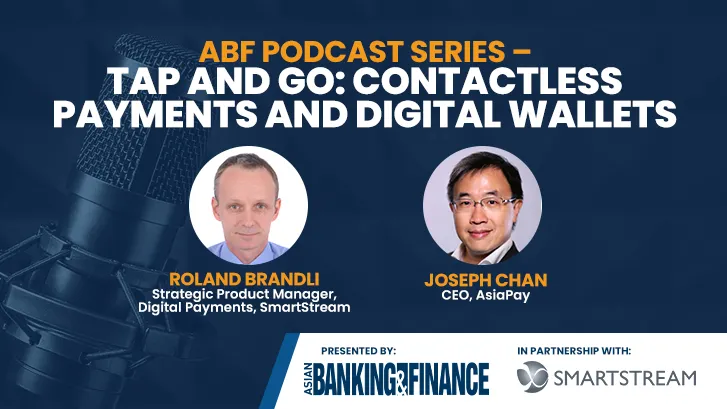
Digital wallets and contactless payments see a steady rise across Asia
The banking industry must adapt to this change to keep up with the demands of the market.
As the digital age continues to change how businesses are run, different factors come into play. One of these is how payments are made. From traditional payment methods of paying in cash or check, businesses have adapted to accepting credit cards in the past decades.
This has changed exponentially in the past couple of years as digital banking continued to grow and adapt to contactless solutions that have enveloped many businesses across the globe.
Today, we see shoppers complete transactions through contactless payments—whether this is via digital wallets or QR codes that are made available to them in various options in shops and restaurants. As this continues to be the norm worldwide, so must businesses adapt to the vastly changing landscape of the industry.
In a podcast titled Tap and go: Contactless payments and digital wallets, Asian Banking & Finance sat down with Joseph Chan, CEO of AsiaPay, and Roland Brandli, strategic product manager of digital payments at SmartStream, to know the latest on digital wallets in Asia.
Digital wallet adoption is amongst the highest in Asia. According to Joseph, this is because many customers in Asia failed to secure their own credit cards, allowing the jump to digital payments from cash to be much easier to adapt to.
“The earlier popular payment method was cards. But in Asia, there's still a large population of consumers who have [no] easy access to cards. [The] conversion [added more] convenience, especially for those consumers in Asian markets that have less access,” he said.
Compared to traditional payment methods, digital payments allow for quick purchases and the completion of transactions, whether online or in-store.
“Now both digital wallets like Apple Pay or Google Pay speed up the payment time at checkout and retail and minimised topping out whilst paying online, mobile, and remotely. It is more secure… [and has] strong authentication like touch ID and tokenisation and password,” he explained.
“[With the] convenience, more consumers can manage the choice of payment type methods… it helps the] Asian market make the community more green, and contribute to a more cashless future empowerment and further enhance the GDP in the Asian economy,” Joseph added.
When asked about the pros and cons of switching to a digital payment system, Roland said that adapting to it will take a while, but the long-term advantages will be worthwhile.
“One of the things that we have to understand is that it also changes the mindset of the customer… Because you can imagine if I'm using my digital wallet on my phone to buy a ticket on a train [and] that doesn't work properly, I'm going to get very agitated,” Roland said.
“With the increased consumption of energy, we are seeing a lot more problems with energy suppliers delivering that energy... so it's really important to make most resilient systems resilient... and let's face it, this is the same thing that we saw with credit cards 30 to 40 years ago,” he added.
As for banks, the adoption of digital options is also needed. With fintech solutions on the rise, there is a need for the banking industry to follow suit.
Joseph said that digital options are now being introduced by banks for car and vehicle payments, particularly for cashless payment schemes and by adding reward schemes.
“So what can a bank do to continue to adapt to these changes? I think I have to think in that way digitally, along with the market trends. It will continue to strengthen its payment products and solutions to address the needs of the merchants and the consumers,” he said.
“[They must] partner with a new style of payment solution firm to optimise the synergies and better understand the market needs, and come up with new solutions bundled to better serve [customers],” he added.
As for Roland, adapting to digital wallets is more than improving service; it's changing one’s business overall.
“I would say be prepared to change your paradigm or to adapt your paradigm; it is no longer just a question of return on investment, it is a question of return on excellence, and this will make all the difference in the future,” he concluded.














 Advertise
Advertise







